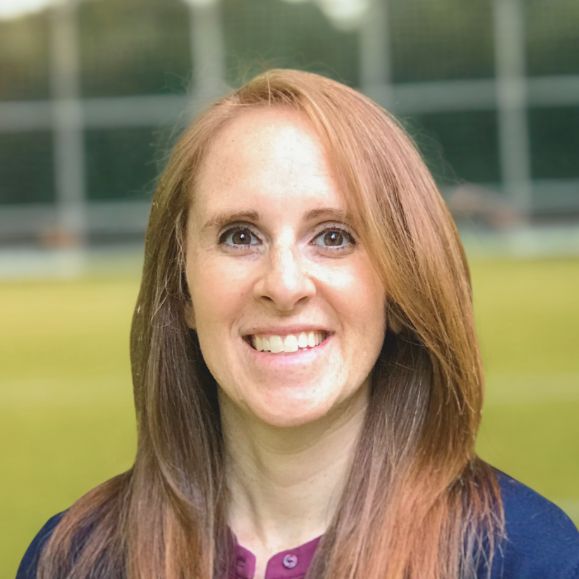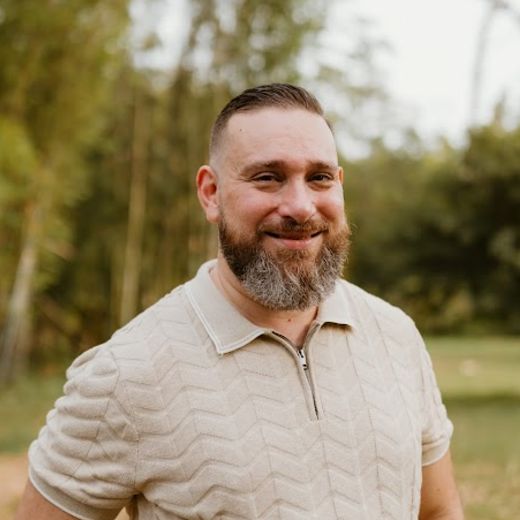Starting Your OCD Therapy Journey in Colorado Springs
Starting your OCD therapy journey in Colorado Springs begins with MiResource’s directory—search “Colorado Springs” to see therapists offering ERP,
CBT
, and ACT, then refine by in-person or telehealth. Use filters for insurance (including
TRICARE
,
Medicaid
, and major private plans), sliding-scale fees, and real-time availability to quickly identify open appointments. You can also filter by specialties like pediatric OCD, perinatal OCD, or co-occurring
anxiety
and
depression
, helping you match with clinicians who truly fit your needs.
Local matching matters in Colorado Springs, where proximity to neighborhoods like Downtown, Briargate, Old Colorado City, and Fountain can improve accessibility and scheduling. Finding a therapist familiar with the city’s military community, outdoor culture, and family-oriented pace can boost cultural fit and engagement in treatment. MiResource makes this easier by showing clinician bios, therapy approaches, and appointment times at a glance, so you can compare options and contact providers directly without phone tag.
Mental Health Resources for OCD in Colorado Springs
If you or a loved one is dealing with OCD in Colorado Springs, there are local crisis, public, nonprofit, and clinical resources that can help. Start with emergency services if there is immediate danger, and use local programs for ongoing care and support groups. Many clinics offer sliding-scale options. You can also use MiResource to find licensed OCD therapists in Colorado Springs.
Emergency & Crisis
- 911 — Immediate danger or medical emergency
-
988 Suicide & Crisis Lifeline
— 24/7 call/text/chat
-
UCHealth
Memorial Hospital Central (Emergency Department):
-
Penrose Hospital
(Emergency Department)
-
St. Francis Hospital
(Emergency Department)
-
Diversus Health
Crisis Walk-In Center (24/7)
Public & City Programs
-
El Paso County Public Health
– Behavioral Health
-
Colorado Crisis Services
(call 1-844-493-8255, text TALK to 38255)
-
Diversus Health
(Community Mental Health Center for El Paso/Teller Counties):
Nonprofits & Support Groups
-
NAMI Colorado Springs
(classes and support groups)
-
Depression and Bipolar Support Alliance
– Colorado groups directory
-
International OCD Foundation
– Find local/virtual OCD support groups
Health Systems & Universities
-
UCHealth
– Colorado Springs (behavioral health referrals and clinics):
-
CommonSpirit
/Penrose–St. Francis Health Services (behavioral health and referrals):
-
UCCS
Psychology Training Clinic (low-cost therapy; training clinic):
-
UCCS Aging Center
(behavioral health for older adults):
Community Clinics / Sliding-Scale
-
Peak Vista Community Health Centers
(integrated behavioral health; multiple sites)
-
Diversus Health
(Medicaid, uninsured, sliding fee)
-
Mission Medical Center
(behavioral health for uninsured/underinsured)
Use MiResource to find licensed OCD therapists in Colorado Springs who match your needs, insurance, and preferences.
The Benefits of Seeing a Colorado Springs-Based OCD Therapist
Working with an OCD specialist in Colorado Springs means your therapy can reflect the rhythms of daily life here—from exposure exercises planned around real local settings (e.g., navigating crowds on Tejon Street downtown, practicing contamination exposures at King Soopers in Briargate, or tackling driving triggers along I‑25 near InterQuest) to nature-based homework on the Pikes Peak Greenway or at Garden of the Gods. A local clinician understands seasonal events and stressors like Territory Days in Old Colorado City, First Friday Downtown, or the Labor Day Lift Off, and can fold them into ERP in a culturally sensitive way. In-person sessions are easy to integrate: many offices near Downtown, Old Colorado City, and the Powers corridor offer free or validated parking, while Downtown garages (Bijou/Cascade, Kiowa/Nevada) and metered spots make quick stops workable; Mountain Metro Transit serves key corridors and the Downtown Terminal, and cyclists can reach sessions via the Pikes Peak Greenway and Cottonwood Creek Trail. For those commuting from Broadmoor, Northgate, or Manitou Springs, flexible scheduling around I‑25 traffic and Bustang connections helps therapy fit your routine.
A Colorado Springs–based therapist can also connect you to community supports that amplify progress between sessions.
NAMI Colorado Springs
hosts local education and peer groups ,
Diversus Health
provides low‑cost services and a 24/7 Crisis Walk‑In Center with same‑day support , and
Colorado Crisis Services
offers statewide help 24/7 at 1‑844‑493‑8255 or via text “TALK” to 38255 . For OCD‑specific resources and groups, the
International OCD Foundation
directory can help you verify specialty training and find local or tele‑support options . Practical access matters: many clinics are ADA‑accessible with ground‑floor entries and ample parking along Academy and North Nevada, and Mountain Metro Transit route connections plus
Downtown
parking guidance (
City of Colorado Springs
) make consistent in‑person care realistic even during busy weeks.
Understanding OCD
OCD is a common mental health condition where unwanted, intrusive thoughts can lead to repetitive behaviors or rituals that feel hard to control. People may experience things like persistent doubts, checking or cleaning, or a strong need for order, and if you’re navigating this in Colorado Springs, you’re not alone.
About OCD
OCD is a pattern of unwanted, upsetting thoughts and urges that can lead to repeating actions to feel safer or “just right.” Common signs include intrusive worries, frequent checking, cleaning, counting, or needing things arranged in a specific way. These cycles can take up a lot of time, cause stress, and make school, work, or relationships harder, including for people living in Colorado Springs. For more details, visit
OCD page.
How Therapy Can Help with OCD
Working with a therapist can help you break the cycle of intrusive thoughts and compulsions, giving you practical tools to regain control of your day. Evidence-based treatments like Exposure and Response Prevention (ERP) and Cognitive Behavioral Therapy (CBT) reduce anxiety, decrease rituals, and build confidence to face triggers. Many people also find Acceptance and Commitment Therapy (ACT) helpful for improving flexibility and quality of life. If you’re ready to take the next step, effective OCD care is available in Colorado Springs.
Inside the OCD Therapy Process
In your first session, we’ll map your symptoms, goals, and triggers, then create a plan; ongoing sessions focus on practicing skills, reviewing progress, and adjusting as needed. We use evidence-based care for OCD such as
Exposure
and Response Prevention (ERP), Cognitive Behavioral Therapy (CBT), and Acceptance and Commitment Therapy (ACT), tailoring pace and strategies to your needs in Colorado Springs. ERP helps you gradually face feared situations while resisting compulsions so anxiety can naturally decline; CBT targets unhelpful thought patterns, and ACT builds willingness to experience discomfort while moving toward your values. Throughout, therapy is a collaborative partnership—you set priorities, we guide and support, and together we track outcomes to keep treatment effective.
Common Questions About OCD Therapy in Colorado Springs
1) How can I tell if I should see a OCD therapist?
If OCD thoughts or rituals are taking up more than an hour a day, causing distress, or interfering with work, school, sleep, or relationships, it’s a good time to seek help in Colorado Springs. Examples include needing to recheck locks repeatedly, excessive handwashing, or constant reassurance-seeking that makes you late or exhausted. You might also notice avoiding places or tasks because of OCD fears, or feeling stuck even though you know the behaviors don’t make sense. Reaching out to a therapist trained in OCD can help you get relief and regain your routine in Colorado Springs.
2) What if the first OCD therapist I see in Colorado Springs isn’t the right fit?
It’s completely normal if the first therapist you try isn’t a match—fit matters a lot in OCD treatment. You deserve someone who understands your goals, communicates clearly, and uses evidence-based approaches. MiResource makes it easier to switch by helping you compare OCD therapists in Colorado Springs, refine your preferences, and find a better match. Your comfort and progress come first, and it’s okay to keep looking.
3) Is virtual OCD therapy effective?
Yes—both virtual and in-person therapy for OCD can be effective, including Exposure and Response Prevention (ERP). Online sessions can offer convenience, privacy, and the ability to practice exposures in your real home environment in Colorado Springs. In-person therapy may feel better for those who prefer face-to-face support or need more structured settings. Many people combine formats over time to fit their needs.
4) What should I ask when choosing a OCD therapist in Colorado Springs?
Ask practical questions about availability, fees or insurance in Colorado Springs, telehealth options, and how quickly you can start. Ask clinical questions, such as:
- What training do you have in OCD and ERP?
- How do you structure exposure and response prevention?
- How will we measure progress and adjust the plan?
- Do you coordinate with psychiatrists for medication if needed?
- What do between-session assignments look like?
Clarify how they involve family or partners if relevant and how they handle urgent concerns.
5) Does OCD therapy really help?
Yes—research shows that Exposure and Response Prevention (a form of CBT) significantly reduces OCD symptoms for most people, and benefits often last with continued practice. Many also improve further by combining therapy with medication like SSRIs when appropriate. People in Colorado Springs commonly report more freedom, less time lost to rituals, and better quality of life. Progress is usually steady rather than instant, and with consistent work, real change is very achievable.













